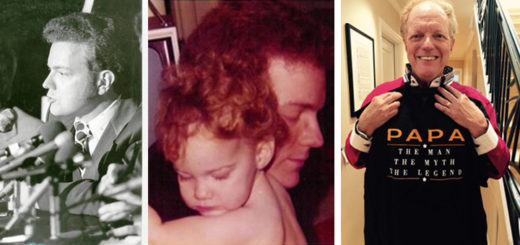UCSF researcher shares what’s inhibiting your sleep
Part one of our sleep series. Part two, which is about the two key changes you can make for better sleep, can be found here.
June is Alzheimer’s & Brain Awareness Month and one of the top 10 things you can do for brain health is to make sure you’re getting enough sleep. We reached out to sleep specialist Dr. Ashley Mason, Assistant Professor of Psychiatry and core faculty at the UCSF Osher Center for Integrative Medicine, to share what things we may be doing that are actually hindering our ability to sleep.

Steeped in sleep
With more than a decade of treating sleep problems, Dr. Mason began her sleep career as an undergrad at Northwestern University before moving to the University of Arizona to earn her PhD. From there she moved on to the VA Palo Alto Health Care System and Center for Health Care Evaluation and eventually came to work at the UCSF Osher Center for Integrative Medicine.
Dr. Mason studied under the late Dr. Richard (Dick) Bootzin who invented Cognitive Behavioral Therapy for Insomnia. “This is considered the gold standard behavioral treatment for insomnia,” said Dr. Mason. “It has an extraordinarily high batting average. It works really well for a lot of people; there is a reason that the American College of Physicians say it should be the first-line treatment for insomnia.“
Dr. Mason’s sleep group
Dr. Mason runs a sleep group at the UCSF Osher Center where she provides cognitive behavioral therapy for insomnia. Her patients have ranged in age from as young as 20 all the way up to 83. They come to her with a wide range of sleep problems.
This group combines individual intakes with group lessons and individual follow ups. Dr. Mason said, “Sleep is a huge problem. I know this because if I took all my waiting lists and booked them out, I’d be booked until 2022 right now, which is worrisome.”
According to Dr. Mason, sleep problems tend to appear when you least expect them. “It could happen when you become a caregiver,” said Dr. Mason, “or, interestingly, when you’re no longer a caregiver. The reason for this is because you are no longer doing your regular routine. You aren’t seeing the same people or doing the same things that will help anchor you to different components of your day in the 24-hour cycle.”

Hindering sleep
Based on the information in part one, we know that sleep hygiene, consistent wake times, and stimulus control will help aid you in getting the best sleep you can. However, there are some things that can make sleep more elusive. While none of these things are off the table when it comes to sleep, it is good to know how they may hinder your progress.
Naps during the day
There are three stages of sleep that occur when you sleep – be it napping in the day or going to bed for the night. They are as follows:
- Stage 1: You’re lightly asleep. If someone were to wake you up, you might not acknowledge that you were asleep.
- Stage 2: You’re moderately asleep. If someone were to wake you up, you would know you were asleep but could easily come out of it awake and aware.
- Stage 3: You’re in deep sleep. If someone were to wake you up, you’d be grumpy at them for waking you up and groggy.
Knowing these three stages is important when it comes to napping because you want to avoid stage 3 sleep (deep sleep) when napping. If you wake up from stage 1 or 2 sleep you’re more likely to feel refreshed than groggy. If you make it to deep sleep, you will be well on your way to completing a full sleep cycle which isn’t something you want to do in the middle of the day.
If you’re going to take a nap during the day you should do it in the late morning or early afternoon and for no longer than 25 minutes. “If you take a nap you may or may not feel better afterward, but it will definitely impact your sleep that night,” said Dr. Mason. “Your adenosine [a neurotransmitter that initiates sleep] builds up during the day, but if you take a nap, you’re causing it to not build up for a little bit. By bedtime you’ll have less adenosine in your brain to help you sleep.”

Caffeine literally blocks sleep
Caffeine is a stimulant used to help people stay awake. As previously mentioned, adenosine builds up in your brain throughout the day. By consuming caffeine, you are blocking the adenosine receptors in your brain, making it so you feel less tired. However, when the caffeine wears off, all of the adenosine rushes in and you’re hit with a wave of tiredness.
“Try to keep caffeine use to the morning” said Dr. Mason. “This is important because caffeine has a half-life. Even after you get hit with that wave of tiredness, it’s still blocking some of the receptors that should be getting filled with adenosine at the end of the day. This will mess with your sleep at night because you’re not actually getting the full amount of adenosine you need to help you sleep.”
Don’t take sleep aids sometimes
There isn’t a rule in sleep hygiene that says “don’t take sleep aids,” but Dr. Mason says what should be included on the list is to not take a sleep aid sometimes, and don’t take different doses based on how you feel. “If you slept poorly, don’t take medications the next night,” said Dr. Mason. “Let your body readjust to the fact that you slept poorly, and your body will adapt your sleep to compensate for what you missed.
REM (rapid eye movement) sleep happens after stage three sleep. It is named REM because during this time your eyes are move quickly in different directions. REM sleep is also the time when you dream.
“Your body is going to adapt and change the ratios of REM sleep and deep sleep so you will get more of what you need the next night. By taking sleeping pills you are altering this natural process, because sleep aids impact your sleep quality – for example, you might get more light sleep on a sleep aid, but less deep sleep. Let your body do what it needs to do to compensate for the fact that it didn’t sleep well the previous night.”
Dr. Mason also discourages people from waking up and taking a sleep aid in the middle of the night. “That’s not the right response,” said Dr. Mason. “Get up and read instead, because tomorrow night you’ll probably sleep better.”

The wrong dosage of melatonin
Dr. Mason discourages the use of melatonin except in rare instances where a person is on a medication that inhibits melatonin secretion. One type of medication is blood pressure medication, specifically ones that end in “olol.”
She recommends you speak with your doctor about any medications you might be taking that could impact your natural melatonin secretion processes. There is data showing that adults aged 55-80 can benefit from a low dose of melatonin, but it is worth a conversation with your doctor first.
“The proper dosage of melatonin is much less than what is commonly sold, oftentimes the proper dose can be 0.5-1mg or 2 mg which is much lower than you see in the store,” said Dr. Mason. “I have patients who have been suffering for years because of inconsistent use of high doses of melatonin. Sometimes dropping the dose of melatonin to 0.5 or 1 mg, and taking it at the same time every night, is the entire fix.”
Ditch the down blankets
Sleep is the time when thermoregulation for your body happens. When you have a blanket that doesn’t let your body cool itself, it can affect that process. For example, it can lead to more frequent sweatiness or hot flashes in women. “You need a cotton, breathable, blanket,” said Dr. Mason.
“Don’t use a wool or down blanket. They keep you too hot, especially if you’re a woman amidst menopause or perimenopause. I’ve had many women tell me that once they’ve switched to a cotton blanket from the down blanket, they have fewer hot flashes and sleep better.”

Seven days for change
Dr. Mason encourages you not to judge yourself on one night of sleep. If you’re going to make a change to impact your sleep, make sure you do it for seven days. “There are too many variables that impact sleep,” said Dr. Mason. “Just because you had one cup of tea one day and you slept great, doesn’t mean that tea is what saved you. Make the change for seven nights and evaluate how it went.
“Sleep isn’t everything. It’s not responsible for every good and bad thing. When you give it that kind of power you can get very anxious about it and it can become even harder to wrangle. A horrible night of sleep doesn’t guarantee you a terrible day the next day.”
For more information on the 10 Ways to love your brain got to alz.org/10ways.
For more information on Dr. Mason’s sleep center visit sealab.ucsf.edu/oshercentersleep
Learn more:


















1 Response
[…] Part two of our sleep series. Part one was released last week and is about things that will inhibit sleep, It can be found here. […]